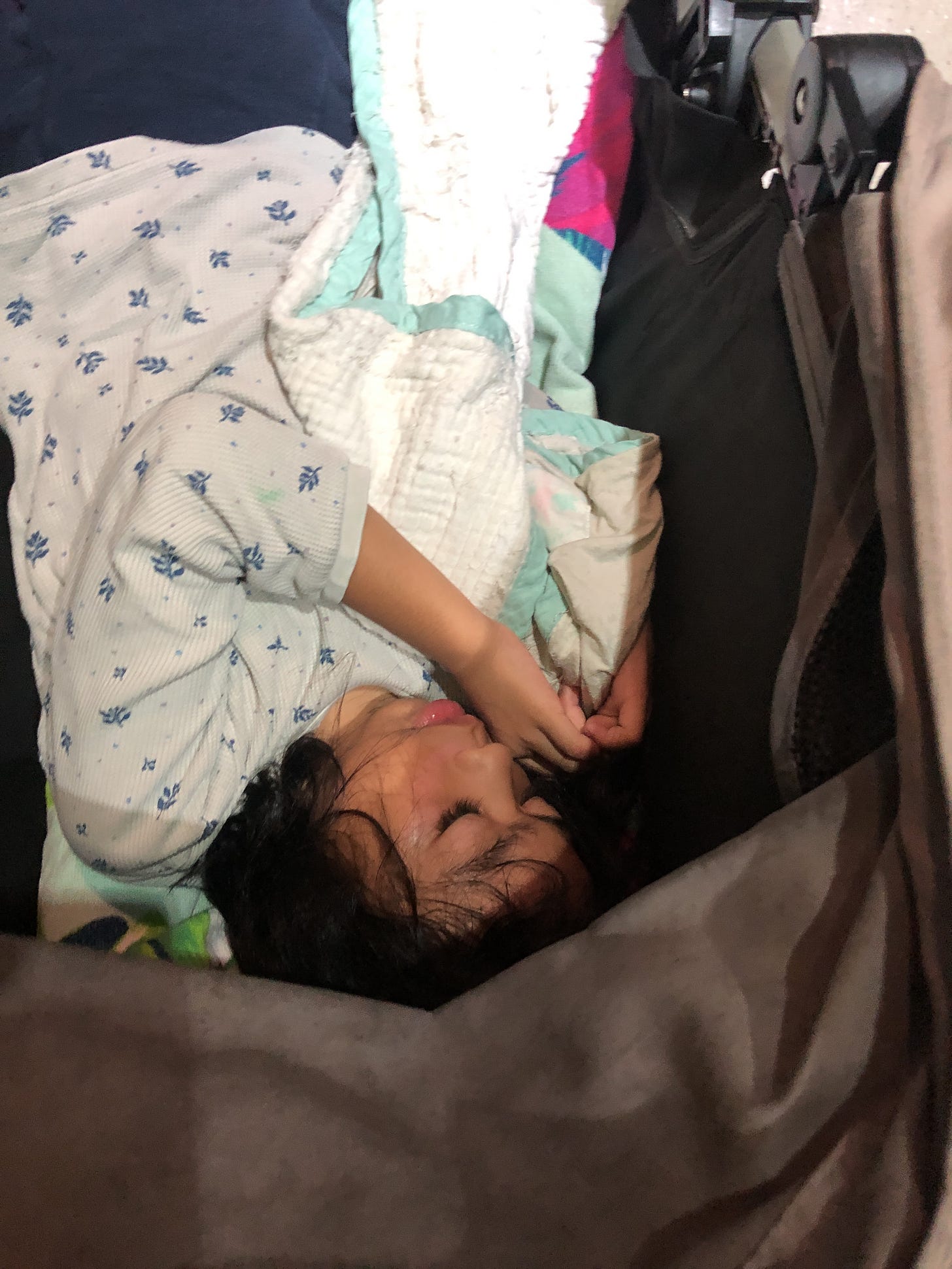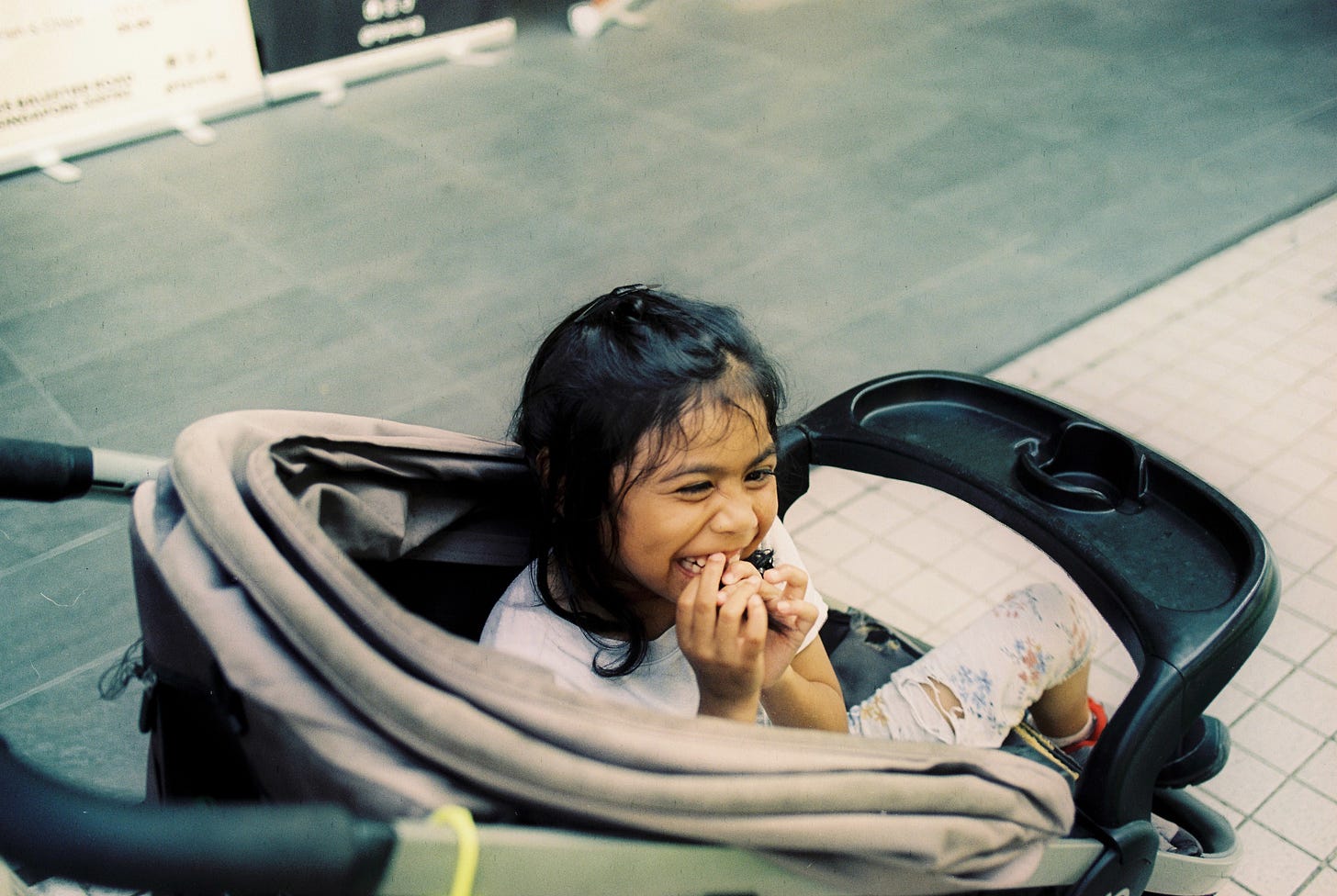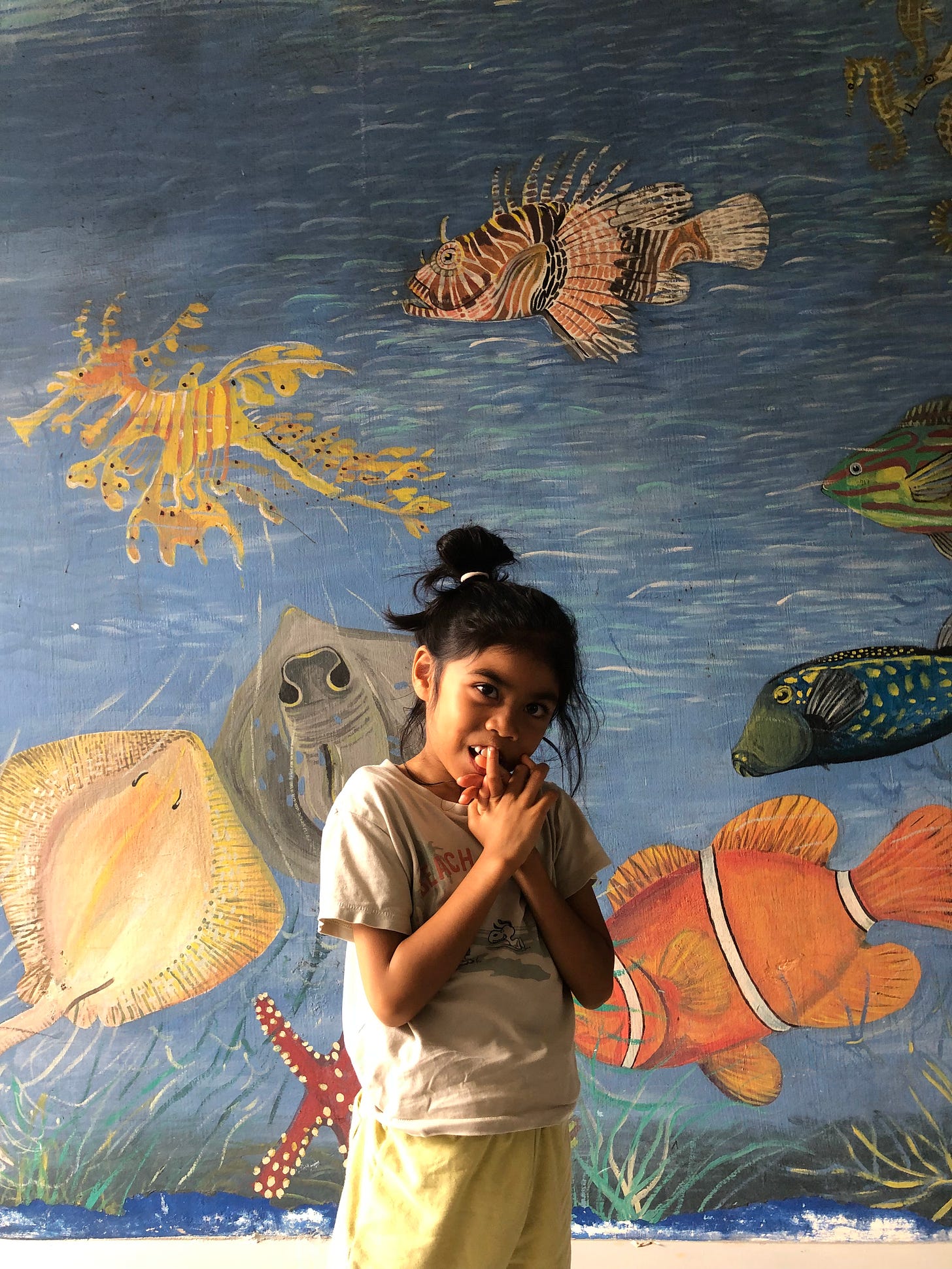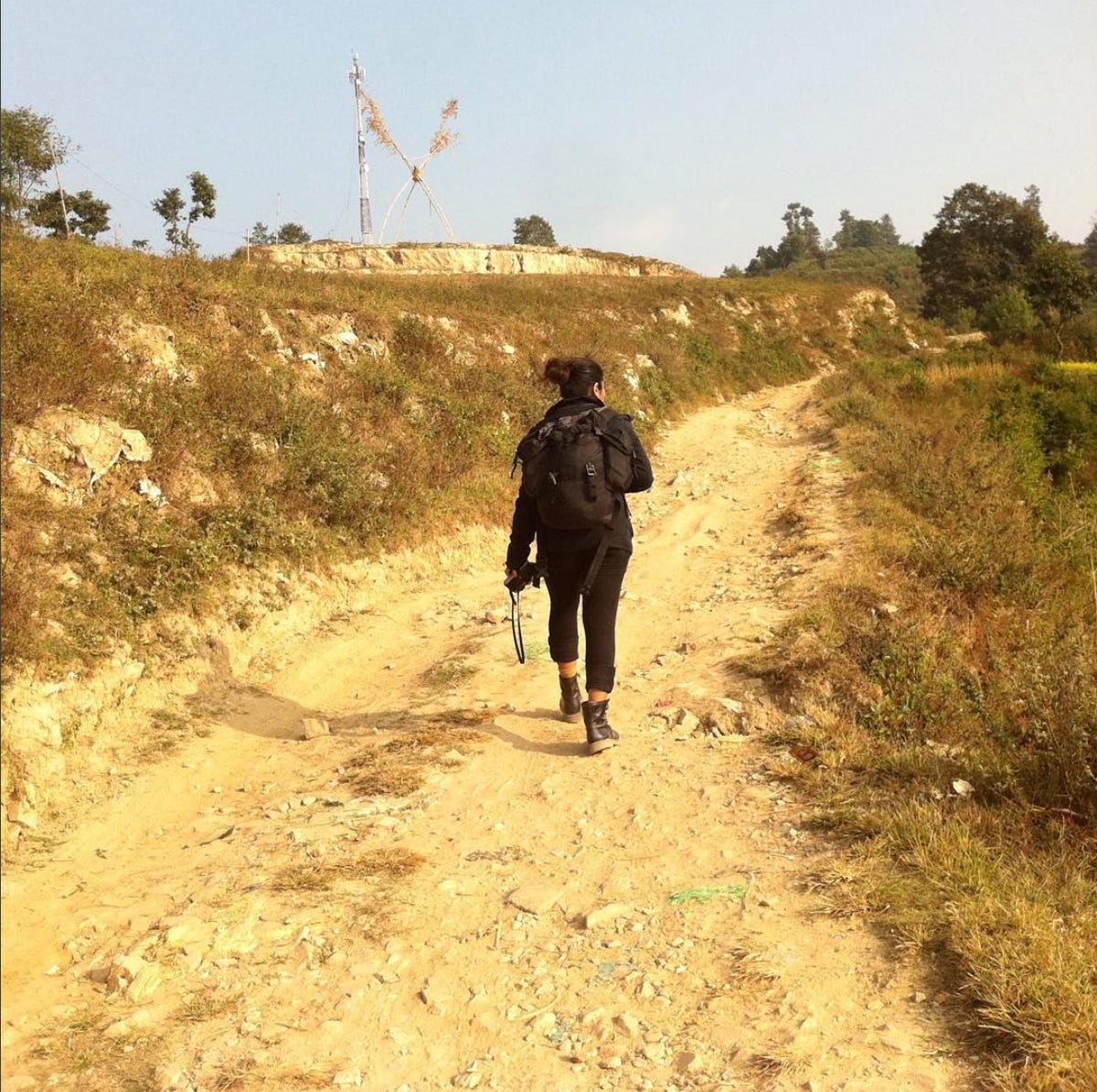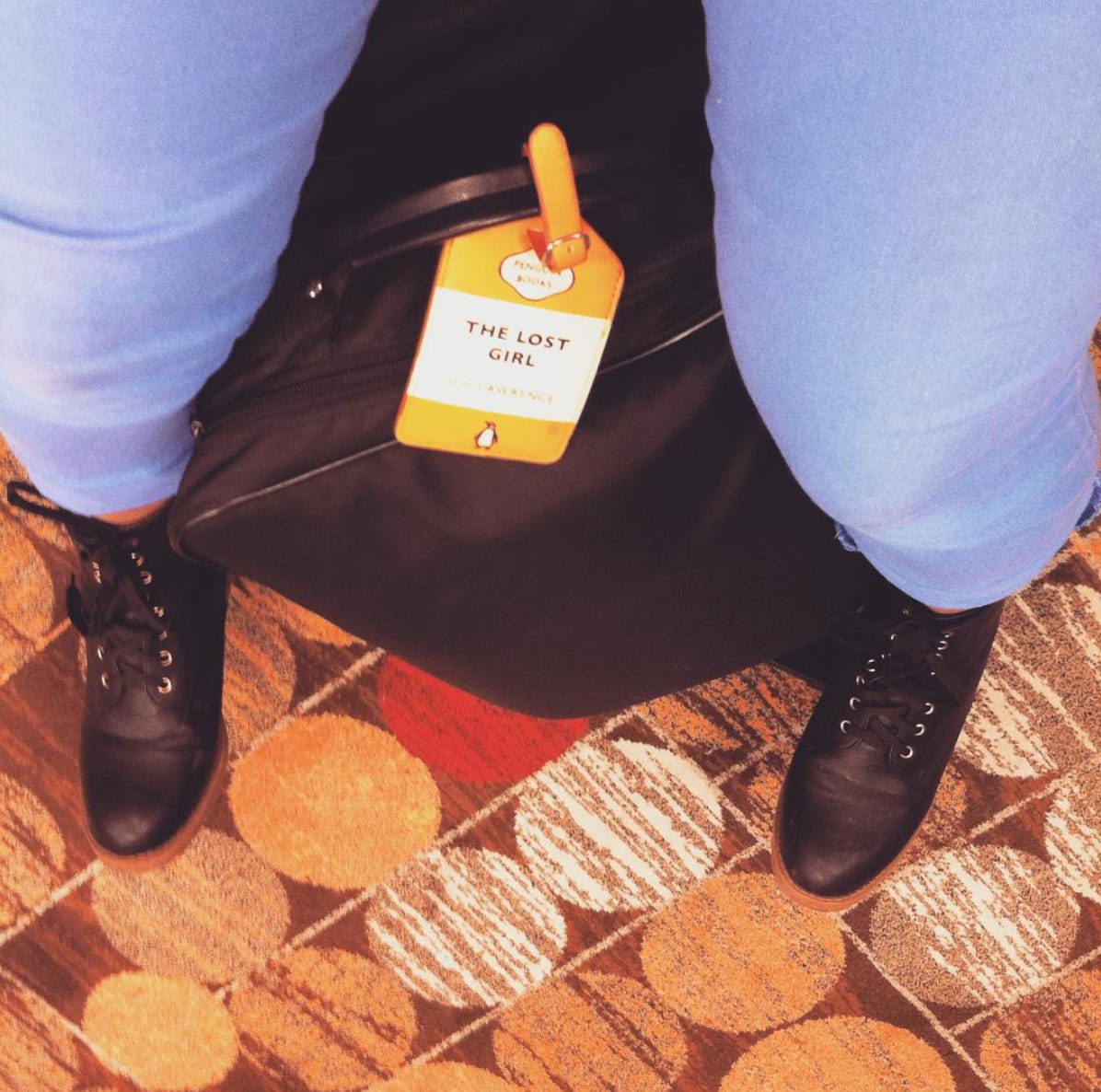Walking: On How To Get Lost
Schedule is tighter than my pants after a big meal atm so here's an old piece to tide y'all over this month.
POSTSCRIPT:
In 2016, Syafiatudina from Jogja, whom I only met several times in the year before that, invited me to contribute to a zine as a response to another fellow artist, Daniel Maier-Reimer whom I’ve never met before, taking a walking journey from Auckland to Christchurch. In the almost passing decade since the piece have been written, and of course as I read it, walking is still my preferred mode of transport through the city. Unlike cycling and my strange relationship with its varying conditions, walking is simpler and more resistant to time efficacies and its expected efficiencies. Walking allows me to take my time, to really be in a place, to navigate in ways that are not determined by another vehicle to carry me across and to places I am required to be. With walking I carry myself across freely and if allowed, almost timelessly through the same routes, or new ones and in the midst of it I still find myself deliciously lost to both time and space.
So much has changed since 2016 though, although the relationship to the act itself has deepened because of it. Now I walk everyday with my child Inaya, sometimes for hours. She sits in her pram and I push her through parks, and on the janky roads, up and down pavements and through alleyways. At night, I push her round a field until she falls asleep. Sometimes when she wakes up at odd hours I’d do the same thing, circumnavigate a field long enough for sleep to reach her again. Here I am by proxy, her extension to the inaccessible parts of the city infrastructure. Ramps are always on the longer route around, an extra mile to get to. I am made aware of how taking up space is an inconvenience to how a city is made to function, fast and seamless with little interruptions. As we’ve replaced several prams, all worn from constant walking, we as a family know that this arrangement itself is temporary as Inaya grows slowly to be too big for her pram but still too wobbly for a city that prefers certain bodies over others. Walking has become tedious and challenging, with unpredictable climate crisis weather of sudden thunderstorms or scorching sun, of zombieland pedestrians whose eyes are glued to their devices and of construction and no way through, just to name a few.
Yet it is during these long walks that we feel the most at ease. The most at home, outside. Even when we travel to other cities, walking its similar features at different hours of the day. Walking is still about getting lost, this time with the pleasures of having company in the form of a little non-speaking child who laughs and squeals as I mimic the sounds of motorbikes and buses, or claw at my hands grasping on the pram’s handles, her sign for a snack or a drink. Sometimes we make it a point to go out pram-less, in the mornings or on Sundays and try to move through and carry ourselves across. It is not easy but somehow necessary for Inaya to be able to experience the untethered joys of walking. Here we try to lose the heavier things, the difficult things beyond the design and function of these walking routes. The fear of falling and getting hurt, the long stares, the undesirable questions and the perturbed expressions when we are slowing down the rhythms and are unapologetically in the way. And we shed them a little each day as our bodies get use to the difficulties of moving and carrying ourselves through a city that turns its head and look the other way.
Anyway, I am truly glad the habit have not left me, or us in these last nine years given the conditions of our present lives. I am glad too that it still offers the same joys and pleasures it has given me many years ago, and if I dare to say, more so than before. I hope you enjoy this little throwback piece and I will write more soon. Take care my dearest fiends, hydrate, ressociate and stay in love. <3
hello dina,
before you embark on what seem to be the an arduous and extensive journey on foot from auckland to christchurch, 1,077km and approximation of 207 hours if you walk non-stop as according to google maps, i would (attempt to) share with you the wonders of walking.
dina, the only reason i am writing to you is that both you and i know how much you hate walking. i can almost feel your dread all the way here on the lion island. the irony of it is that i hate writing, probably as much as you hate walking and i hope somewhere in this attempt of a letter, we can convince each other to give walking//writing a chance.
i have never asked you dina why you hate walking but i can only assume that it is such a physical act that involves all your sensorial effectiveness; to figure out where you are going and where you are, to remember how did you get here and how will you get back, to be conscious of the unfamiliar surroundings and be able to, in a short span of time, make it familiar and comfortable, to be aware of any forms of danger that might exist without being explicit with the unsettling sense that you are not in control of the environments you’ve placed yourself in through the act of walking. you are constantly alert and it can be taxing after awhile. your body will start to ache and your feet will begin to tire and your mind begins to drift slightly.
however, there are the joys of walking and for me its not really about the distance covered or the hours that it takes to cover it, its not so much of getting from one point to another either. surprisingly, it took me awhile to understand my constant desire to walk in singapore (and subsequently in other cities) and i began my own journey by trying to trace the origins of my preferred method of moving around. dina, i guess we walk firstly due to proximity, if its close enough why not? i remember the first memories of this conscious act of walking as a sense of independence (walking to the provision shop two blocks away, walking to school on my own, walking to other parts of the neighbourhood to visit friends during Aidilfitri), the sense of accomplishment and pride would swell up inside after long hours of negotiation and finally reaching a consensus, the distance becomes longer each time, a measure of trust between my parents and I.
subsequently, walking was an option i took at that time reluctantly as a struggling student, because I had to save on living expenses. If I had missed a bus, I would walk several bus stops, continuously turning my head to check if the bus was coming. If i missed it again, I would keep on walking, until by chance, the bus stop, myself and the bus synchronised ourselves to each other. the strange game I created gave a delusional sense of achievement and made the long distances I covered bearable. still at this stage it was functional; getting from point A to point B, always with a destination at the end. There were however several instances where I would go off-route and completely lose my bearings. I would keep on walking, getting lost in my own make-shift labyrinths, until I stumble across some form of familiarity. dina, you and I both know how convenient it is to get around here. getting lost in singapore does not trigger any sense of long-term overdrawn state of panic. anyone could easily check their location from their smartphones, walk over to a bus-stop and find out where the hell they are just by checking the direction boards or walking to the nearest train station or simply asking random pedestrians you would cross paths with.
what started off as a necessity to help me ease on my transport costs slowly became habitual. walking was my solitary act of defiance with time. i could disappear for hours each night just walking through the streets, exploring places I’ve never come across before, a hindu temple under a bridge, an abandoned colonial house hidden up a hill, a bridge suspended above the highway where you can dangle your feet and watch cars driving past. sometimes a wrong turn could bring you to places that might not even exist anywhere else, as a consequences, I was always late for appointments, casually apologising to friends, attributing it to my bad sense of direction (which was a half-truth) and my failure to recognise my surroundings (which was something I probably did subconsciously). my closest friends gave me the nickname “ilang” (disappear or missing), a play on my own name. at which point did the act of walking stopped to serve just a functional purpose? i seriously do not know dina but the sense of dread i use to feel at the idea of walking disappeared somewhere between the third paragraph and the current paragraph of this letter.
dina, when i walk, i feel that i am in control of myself but i have absolutely no control of my environments. i think there is no single word that describes this particular feeling. after years of walking alone, i met a boy who love to walk in the same manner that i do. we grew tired of watching movies or going for the blah-blah dinner/lunch dates where we would talk over food and ended up going to the airport to watch the planes leave this tragic island-state, plotting our own future escapes. a decade later, i would end up marrying him, the same boy who would take out his dog-eared worn down street directory and with my eyes closed get me to point to a page that we end up spending an entire day walking to. sometimes we would repeat the walks that we seem to take pleasure in, the ones that are not necessarily marked in the street directory. one in particular was an abandoned MRT station in punggol. we would walk through the overgrown lalang, with no defined path to guide us, second-guessing the route until we caught sight of the train station and the abandoned road leading to it. we would sit right below the unused train tracks and sometimes when we are lucky, we would get chased by aggressive guard dogs from the construction sites. dina, this is how i disappear completely, by walking to a place that does not exist.
dina, as i come to almost the end in my journey with you to understand why I find joy in walking, I think it is pertinent for both of us to know that it is not so much the act of walking but the act of getting lost. losing hours, losing myself, losing my way, losing track of where i am or how I might get home (wherever that may be) brings about a sense of ease that I could slip into comfortably, like a secret I can only whisper to you in hushed gibberish and although it will definitely bring a smile to your face, might not be something you could fully comprehend and something i obviously struggle to explain to you right now.
over the years, i have been privileged to be able to walk in cities that are entirely un-walkable. the uneven grounds, missing routes and the barely there pavements shortcut through alleyways that lead into a different universe at every turn. at the end of each trip, i would write down all the things I would have missed if I had went by car/motorbike/taxi instead. the list is pretty extensive dina. however i realised that I could never recall the exact spots in which I had experience all these moments. if you were to give me a map, i could not point out the exact location in which these accidental exchanges took place. dina, there is therefore a kind of magic when i choose to disappear through the act of walking.
many many years ago, cartographers travel to map the world, to create lines and boundaries, to chart distances between places. before i wrote to you, i was thinking about how i can explain to you the ideas of un-mapping oneself from the rest of the world to discover something else? how do i tell you exactly how to miss a turn, forget a route and disappear ? the best way i guess is to take that walk and experience it for yourself. that would be a start wouldn’t it ?
dina, in the length of time writing you this letter, I realised, in all honesty, no wondrous feelings to take away from the act of walking, but everything else that comes with the act itself is something precious and cannot be encapsulated in words.
xx
ila



